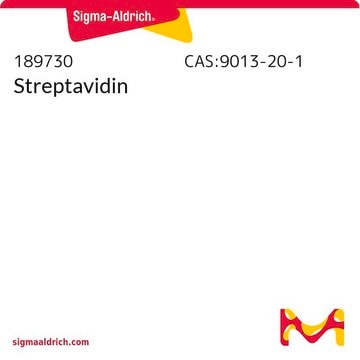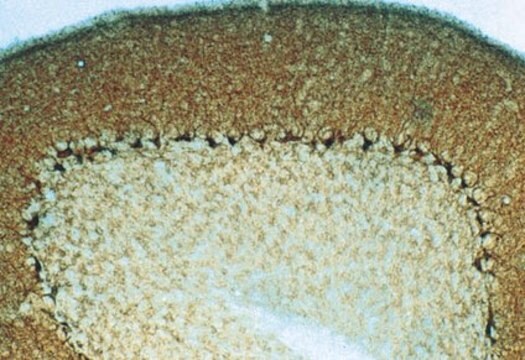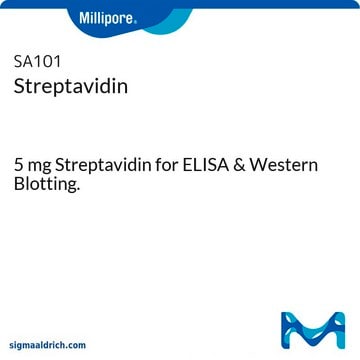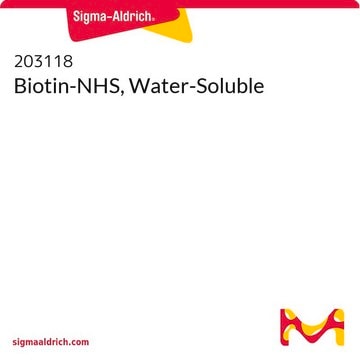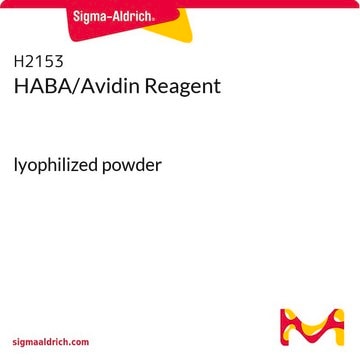Kluczowe dokumenty
BK101
ImmunoProbe™ Biotinylation Kit
Synonim(y):
Biotinylation Kits
Wybierz wielkość
2760,00 zł
Wybierz wielkość
About This Item
2760,00 zł
Polecane produkty
temp. przechowywania
2-8°C
Szukasz podobnych produktów? Odwiedź Przewodnik dotyczący porównywania produktów
Opis ogólny
Zastosowanie
Cechy i korzyści
- Complete protocols for labeling and assay
- BAC-Sulfo-NHS is completely water soluble
- No DMF or DMSO needed
- Biotinylation occurs near neutral pH and physiological ionic strength, avoiding harsh conditions that could damage sensitive proteins
- Fast separation of conjugate from reactants using gel filtration
- 2-5 molar ratio biotin to protein in conjugate (for antibodies)
1 mg protein per reaction (B-TAG)
10 mg protein per reaction (BK-101)
• Sufficient reagents for at least 5 labelings
Opakowanie
Komentarz do analizy
Conjugation is performed in four easy steps:
1. Reconstitute BAC-Sulfo-NHS with Phosphate Buffer (PB).
2. Add BAC-Sulfo-NHS to protein and allow to react for 30 minutes at room temperature.
3. Separate the conjugate from the reactants on gel filtration.
4. Assay the conjugate for biotin incorporation by the avidin-HABA assay (BK-101 only). Conjugate is ready to use.
Informacje prawne
Hasło ostrzegawcze
Danger
Zwroty wskazujące rodzaj zagrożenia
Zwroty wskazujące środki ostrożności
Klasyfikacja zagrożeń
Eye Irrit. 2 - Resp. Sens. 1 - Skin Irrit. 2 - STOT SE 3
Organy docelowe
Respiratory system
Kod klasy składowania
10 - Combustible liquids
Wybierz jedną z najnowszych wersji:
Certyfikaty analizy (CoA)
Nie widzisz odpowiedniej wersji?
Jeśli potrzebujesz konkretnej wersji, możesz wyszukać konkretny certyfikat według numeru partii lub serii.
Masz już ten produkt?
Dokumenty związane z niedawno zakupionymi produktami zostały zamieszczone w Bibliotece dokumentów.
Klienci oglądali również te produkty
Powiązane treści
Access high-quality reagents for antibody workflows, including adjuvants, blocking reagents, conjugation kits, and more.
Active Filters
Nasz zespół naukowców ma doświadczenie we wszystkich obszarach badań, w tym w naukach przyrodniczych, materiałoznawstwie, syntezie chemicznej, chromatografii, analityce i wielu innych dziedzinach.
Skontaktuj się z zespołem ds. pomocy technicznej



